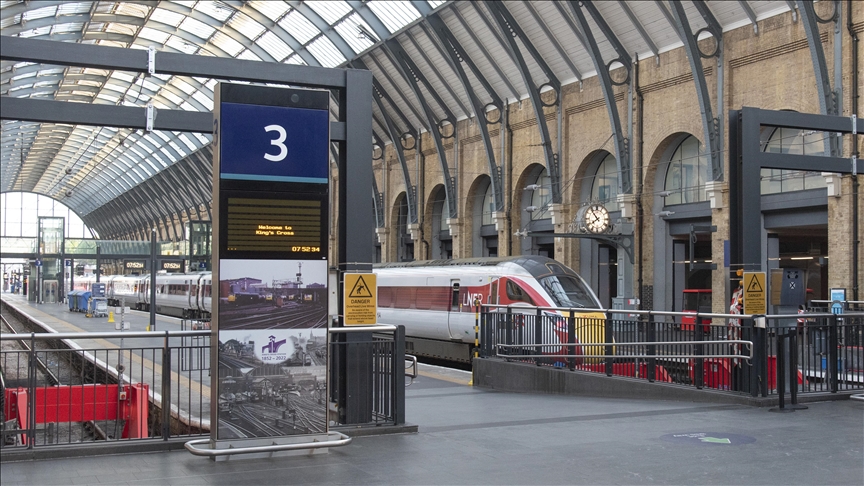
More than 20,000 members of the Rail, Maritime and Transport (RMT) Union at 14 rail companies went on strike on Thursday as part of a long-running dispute over working conditions, pay and job security.
The strike came as rail bosses announced more than 2,000 job cuts and the closure of 1,000 ticket offices across the rail network in the country.
The National Rail has warned the passengers, saying they should expect large areas of the rail network to have little or no services.
Although the operators are based in England, some run services into Wales and Scotland.
RMT General Secretary Mick Lynch said: “I am proud of our members for showing such fortitude and resolve in this long running dispute. Our members and our union will not be cowed by rail bosses or government ministers and our dispute will continue until we can reach a negotiated settlement.”
The union said further strike action is planned for July 22 and 29.
British commuters are set to face further disruptions in the coming days.
Drivers, who are the members of Associated Society of Locomotive Engineers and Firemen (ASLEF), are not working overtime at 15 train companies between July 17 and 22.
ASLEF’s action is not a full strike but could cause some reduced timetables and last-minute cancelations.
The railway strikes commenced in June 2022 after RMT members walked out over wages and planned changes to working practices.
The disputes in Scotland and Wales were resolved by the RMT in December 2022, and by ASLEF in May 2023, while the dispute in England is continuing to this day.
